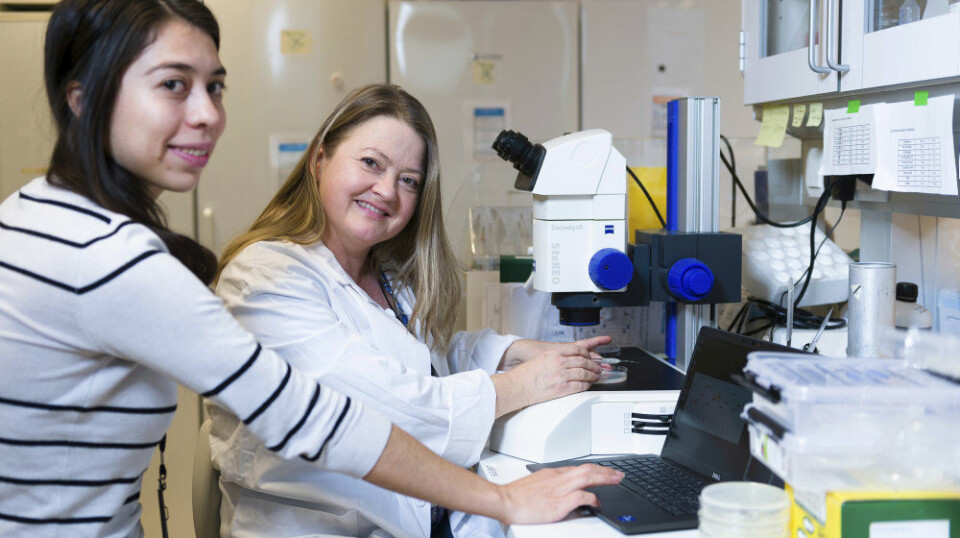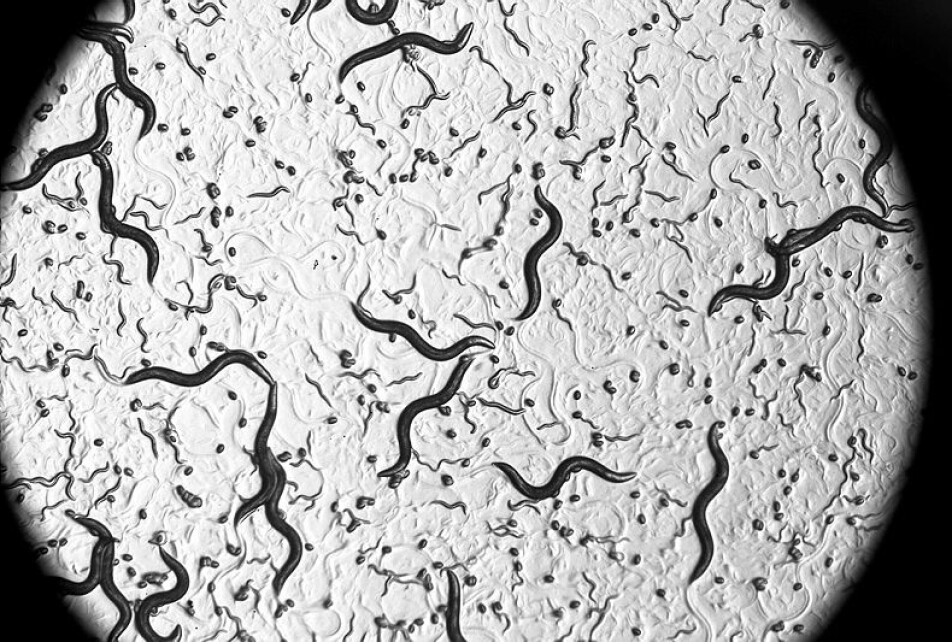THIS ARTICLE/PRESS RELEASE IS PAID FOR AND PRESENTED BY University of Oslo - read more

Researchers have managed to slow the aging process in animal models
Researchers gave krill oil to roundworms: “We have found that we can slow down the rate of aging and increase the health and function in animal models as they grow older."
Aging is a biological process in which the body loses viability and becomes frail. Old age is the most prominent risk factor for many diseases. The older we get, the greater the risk of getting diseases such as cancer, dementia and cardiovascular diseases.
If we can slow down the pace of the aging process, more elderly people will be able to stay healthy. More people may then enjoy good health in their old age than what is the case today. In addition to the benefit for people, this may also have a large positive impact on society.
“We have found that we can slow down the rate of aging and increase the health and function in animal models as they grow older. Conceptually, this is very interesting,” Hilde Loge Nilsen says.
She is a researcher and Head of Department at the Department of Microbiology at the Institute of Clinical Medicine at the University of Oslo.
We can slow down the speed of aging
There is a lot of research on aging.
Many researchers have tried to find out whether the speed of the biological aging process can be slowed down, according to Loge Nilsen.
“Our study shows that we can actually flatten the curve for the speed of aging,” the researcher says.
The aging process is like the outline of a mountain
Imagine the aging process as a line moving upwards.
With each passing year, you get a little older. Not just in the number of years you have lived, but also biologically speaking. The body is aging.
The line that shows how old and frail your body is moves in a straight line, like along the side of a steep mountain.
The curve flattens out
However, the line is no longer straight and merely moving upwards.
“We found that this line, which shows how fast the aging process occurs, flattens out,” Loge Nilsen says.
It is as if you walk up a mountain that has a plateau at the highest point. There, you can stay longer without becoming too tired.
This was also the case for the roundworms.
“Instead of the animals becoming frail as time went by, they stayed at the same level of health for a longer period of time. They got older, but not frail,” she explains.
We have to think anew about the age wave
In the future, there will be many more elderly people than today.
The population is aging. The so-called age wave presents a number of challenges. Who will take care of the elderly and how will society pay for it?
“As a society, we have to rethink our approach to tackle the changing demographic. The fact that there will be many more elderly people is going to put a lot of pressure on the healthcare system because many of our most common diseases are due to aging. We know that we are not enough people to work in the healthcare system and to pay taxes to manage this,” Loge Nilsen says.
More healthy years for everyone?
Loge Nilsen points out that the most concrete solutions that have been envisaged so far have revolved around new generations working longer before they retire.
“If, on the other hand, we manage to find a way to stay healthier for longer, for example that the elderly can take a type of nutritional supplement, we may be able to delay the first heart attack, delay dementia or a cancer diagnosis. With just a few extra healthy years, it will be a big win for society. We want to save money and of course we also want to avoid suffering,” she says. “Our dream is to add another stone on the path to a future where we can achieve this. More healthy years for everyone.”
The aim is therefore not that we should live longer than today, but that we should have the best possible health for as long as possible.
But how can we slow down aging?
Aging in the cells
Many vital processes take place in our cells, which deteriorate as we age. Cells also communicate less well with each other than young cells.
In addition, the genetic material in the cells accumulate damage. The mitochondria, which provide the cells with energy, also function less well in aging cells compared to younger cells.
“The trick to slowing down the aging process is to make sure that the cells continue to function as well as possible, also when we get older,” Loge Nilsen says.
A cocktail that can slow down aging in cells
“The findings in our study show that we can inhibit many of the processes in the cells that drive aging. In the study, we used krill oil, which contains several different substances that can act on these processes at the same time,” she says.
The researchers did various experiments on roundworms (nematodes), which are small caterpillar-like animals. These roundworms only live for about three weeks.
Despite their short lifespan, they go through a life course similar to our own.
“They develop from small larvae to young adults. They then become sexually mature and reproduce. After childbearing age, they live quite a long time, like us, where they gradually age and lose function. We can easily recognise an old nematode, it is a little thicker, wrinkled and slow in its movement,” Loge Nilsen says.

The roundworms lost fewer nerve cells in the brain
In the study, the researchers investigated the development of Parkinson's disease in older roundworms.
Parkinson's disease is a disease of the brain in which we gradually lose nerve cells. The disease affects patients' ability to move and can cause muscle stiffness and tremors.
“The roundworms do not get Parkinson's disease, but they show some of the same characteristics that people with this disease have. We can measure these, and then see that nematodes that receive krill oil do not lose the nerve cells in the brain as they get older,” Loge Nilsen explains. “The roundworms therefore preserve memory, neuromuscular function and are generally much more active in old age than other roundworms."
A number of clinical studies show documented health-promoting effects of krill oil in humans, according to Loge Nilsen.
It remains to be seen whether the same effect of krill oil on slowing the rate of aging, which was seen in the roundworm, can also be shown in humans.
Reference:
SenGupta et al. Krill oil protects dopaminergic neurons from age-related degeneration through temporal transcriptome rewiring and suppression of several hallmarks of aging, Aging, 2022. DOI: 10.18632/aging.204375

This article/press release is paid for and presented by the University of Oslo
This content is created by the University of Oslo's communication staff, who use this platform to communicate science and share results from research with the public. The University of Oslo is one of more than 80 owners of ScienceNorway.no. Read more here.
See more content from the University of Oslo:
-
Queer opera singers: “I was too feminine, too ‘gay.’ I heard that on opera stages in both Asia and Europe”
-
Putin’s dream of the perfect family
-
How international standards are transforming the world
-
A researcher has listened to 480 versions of Hitler's favourite music. This is what he found
-
Researcher: "AI weakens our judgement"
-
New, worrying trend among incels, according to researcher




































